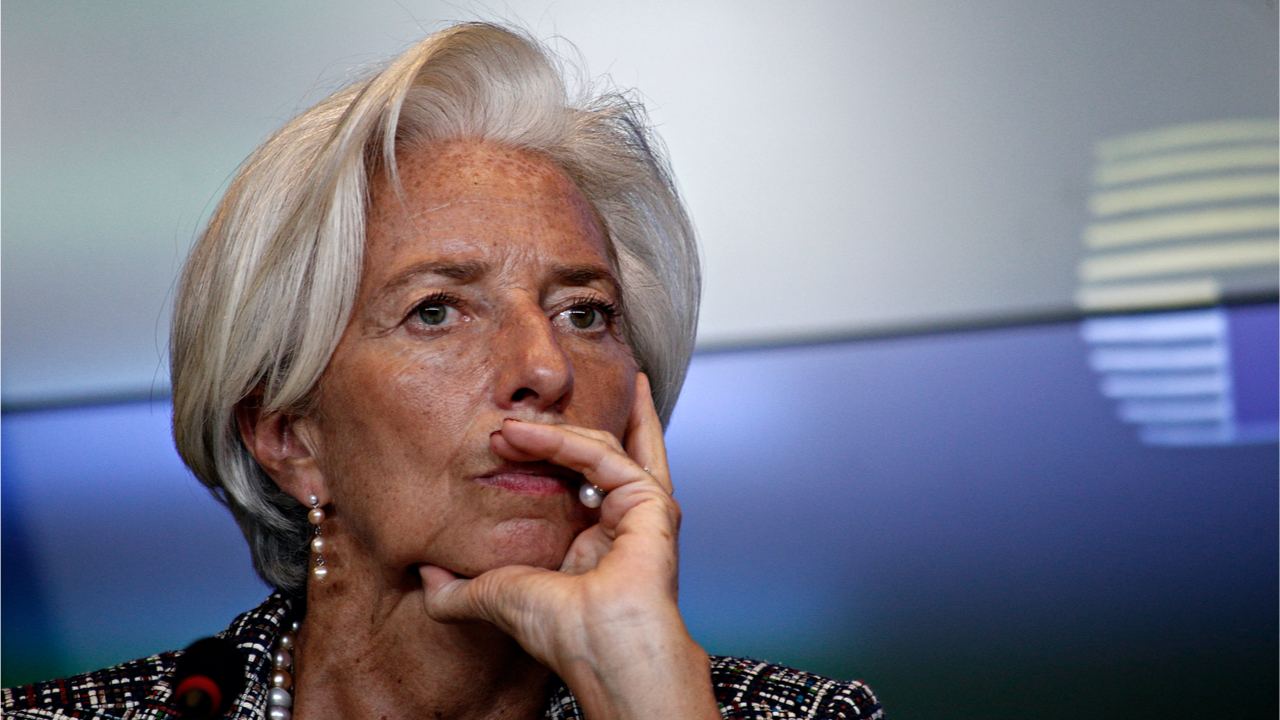Latest news about Bitcoin and all cryptocurrencies. Your daily crypto news habit.

After the inflation rate in the eurozone reached a high of 7.5% in March, the European Central Bank (ECB) and the bank’s president Christine Lagarde explained on Thursday the central bank’s bond purchases will cease in Q3. Reiterating what she said at a press conference in Cyprus two weeks ago, Lagarde stressed on Thursday that inflation “will remain high over the coming months.”
European Central Bank Plans to End Asset Purchase Program in Q3
The eurozone is suffering from significant inflationary pressures as rising consumer prices are ravaging European Union (EU) residents. In March, data from the ECB had shown consumer prices skyrocketed to 7.5% and the ECB’s president Christine Lagarde expected energy prices to “stay higher for longer.” On April 14, members of the ECB met and then told the press that the central bank plans to cease its APP (asset purchase program) by the third quarter.
“At today’s meeting the Governing Council judged that the incoming data since its last meeting reinforce its expectation that net asset purchases under the APP should be concluded in the third quarter,” the ECB disclosed to the press. After the APP ends, the bank is expected to start hiking the benchmark bank rate. However, in Lagarde’s opinion, it will depend on what happens with the current Ukraine-Russia war.
The EU’s economic improvement, Largade said “will crucially depend on how the conflict evolves, on the impact of current sanctions, and on possible further measures.” The central bank’s message on Thursday highlighted that benchmark bank rates won’t change until end of the APP. “Any adjustments to the key ECB interest rates will take place some time after the end of the Governing Council’s net purchases under the APP and will be gradual,” the ECB detailed in a statement.
Fidelity International Global Macroeconomist: ECB Faces a ‘Tough Policy Trade-off’
Following the ECB’s and Largade’s statements, the gold bug and economist Peter Schiff threw in his two cents on Twitter about the central bank keeping rates suppressed. “The ECB announced interest rates will stay at zero until it judges inflation will stabilize at 2% over the medium term,” Schiff tweeted. “Eurozone inflation is currently 7.5%. How will throwing more gasoline on a fire put it out? Europeans are stuck with inflation well above 2% indefinitely.” Schiff continued:
The dollar is rising against the euro because the Fed is still pretending it will fight inflation, while the ECB is still pretending inflation is transitory. Once both banks stop pretending the dollar will fall against the euro, but both currencies will collapse against gold.
Speaking with CNBC on Thursday, global macroeconomist at Fidelity International, Anna Stupnytska, said the European Central Bank faces a “tough policy trade-off.” “On the one hand, it is clear that the current policy stance in Europe, with interest rates still in the negative territory and the balance sheet still growing, is too easy for the high level of inflation which is becoming broader and more entrenched,” Stupnytska remarked after the ECB’s statements. The Fidelity International economist added:
On the other hand, however, the Euro area is facing a huge growth shock, simultaneously driven by both the war in Ukraine and China’s activity hit due to zero-COVID policy. High frequency data already point to a sharp hit to Euro area activity in March-April, with consumer-related indicators worryingly weak.
What do you think about the ECB explaining that bond purchases will end in Q3 and the discussion concerning raising the benchmark bank rate? Let us know what you think about this subject in the comments section below.
Disclaimer
The views and opinions expressed in this article are solely those of the authors and do not reflect the views of Bitcoin Insider. Every investment and trading move involves risk - this is especially true for cryptocurrencies given their volatility. We strongly advise our readers to conduct their own research when making a decision.